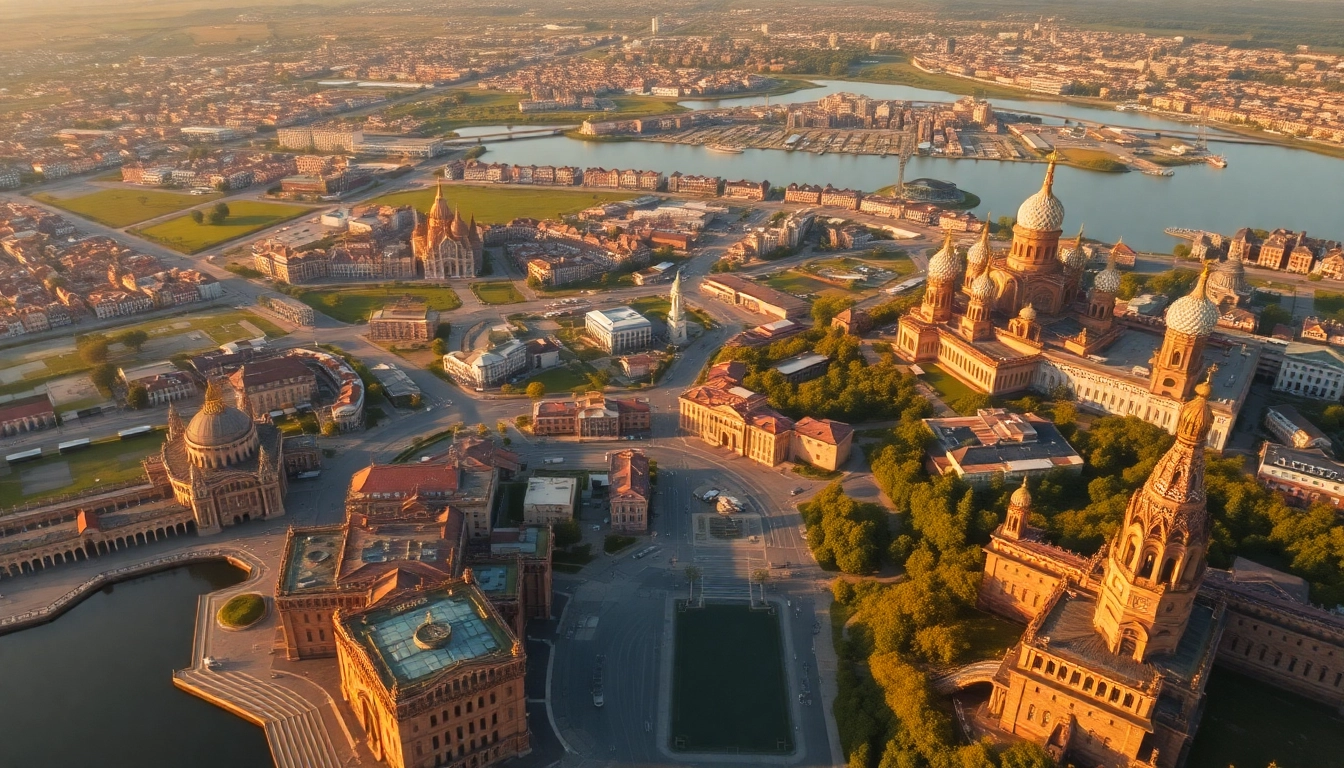Introduction to Russia Africa Relations
The relationship between Russia and African nations has evolved significantly in recent years, reflecting a broader shift in global geopolitical dynamics. As countries across the African continent seek to assert their independence and foster partnerships that align more closely with their national interests, Russia Africa relations have garnered increasing attention. This article aims to explore the historical context, current developments, and the significance of these partnerships in the quest for development and cooperation.
Historical Context
Russia’s engagement with Africa has deep historical roots, dating back to the Soviet era when Moscow aimed to counter Western influence on the continent. During the Cold War, the Soviet Union supported several African liberation movements and established strong ties with countries such as Angola, Mozambique, and Ethiopia. This initial phase of diplomatic relations laid a foundation that influenced future engagements.
Following the dissolution of the Soviet Union, Russia’s focus on Africa diminished, but as global power dynamics changed, so too did its approach. The contemporary resurgence of interest in Africa can be attributed to several factors: the need for energy resources, increased competition for markets, and the desire to create strategic alliances that can bolster Russia’s standing on the world stage.
Current Developments
In recent years, Russia has ramped up its diplomatic and economic activities across Africa. High-level visits by Russian officials, including President Vladimir Putin, have become more frequent, culminating in significant events such as the 2019 Russia-Africa Summit in Sochi. This summit was a pivotal moment, showcasing Russia’s commitment to fostering partnerships by promoting economic cooperation, political dialogue, and cultural interaction.
In addition to diplomatic overtures, Russia has pursued economic partnerships focused on sectors such as energy, mining, and defense. Initiatives like the development of nuclear power plants in countries like Egypt and the establishment of partnerships in the diamond and gold mining industries are prime examples of how Russia is actively seeking to bolster its influence across Africa.
Significance of Partnerships
The significance of Russia-Africa partnerships cannot be overstated. For African nations, these alliances present opportunities for economic diversification, technological advancement, and increased international leverage. Russia’s willingness to provide military support and assistance in governance also appeals to several governments facing threats from internal conflicts or external pressures.
Conversely, Russia benefits from these relationships by gaining access to vital natural resources and new markets for its arms and technology. The interplay of mutual benefits sharpens the relevance of these partnerships in the contemporary geopolitical landscape.
Key Areas of Cooperation
Economic Collaboration
Economic cooperation serves as a cornerstone for enhancing Russia-Africa relations. Various sectors including energy, mining, and agriculture are prime areas where collaboration has intensified. For instance, Russian companies are now heavily involved in extracting resources such as oil and diamonds, creating win-win situations for both parties.
The energy sector, in particular, has emerged as a focal point. Russia’s expertise in nuclear energy is being capitalized on as African nations seek to expand their power generation capabilities. Projects like the El Dabaa Nuclear Power Plant in Egypt illustrate the growing interdependence in energy security between the continents.
Health and Humanitarian Aid
Beyond economic considerations, health and humanitarian efforts have also played a significant role in revitalizing relationships between Russia and African countries. For example, Russia has provided crucial support during health crises, such as the COVID-19 pandemic, by supplying vaccines and medical equipment to Africa.
Moreover, humanitarian assistance programs are increasingly being tailored to meet the specific needs of various nations, encompassing areas such as food security and disaster response. This aspect of cooperation enhances not only diplomatic goodwill but also Russia’s image as a responsible global player.
Cultural Exchanges
Cultural exchanges have bolstered goodwill between Russia and African countries, facilitating a deeper understanding of each other’s histories and values. Numerous initiatives, including educational scholarships for African students in Russia and cultural events promoting Russian art and literature, have been established.
These cultural ties foster a sense of fraternity and mutual esteem, enriching the fabric of diplomatic relations and contributing to a more comprehensive partnership beyond mere economic transactions.
Challenges Facing Russia Africa Relations
Geopolitical Tensions
Despite the promising trajectory of Russia-Africa relations, several challenges loom large. Geopolitical tensions, especially those involving Western nations, pose significant hurdles. As Russia expands its influence in Africa, it often encounters resistance from Western powers, which may perceive these developments as a threat to their existing interests.
The realignment of alliances could provoke geopolitical upheaval in the region, necessitating careful navigation of international relations by both Russian and African leaders.
Economic Dependencies
Economic relationships can also lead to vulnerabilities. While African nations strive to build partnerships that foster development, reliance on Russian economic assistance may create a situation where dependent relationships emerge. This necessitates ways to ensure that collaborations are equitable and that African nations retain agency over their economic trajectories.
Efforts should focus on establishing frameworks that promote sustainable growth while preventing economic exploitation or neocolonial dependencies.
Public Perception and Misinformation
Public perception in both Russia and Africa can influence the trajectory of bilateral relations. Misinformation and negative narratives propagated through media channels may cloud the public’s understanding of the intricate dynamics at play. Combating misinformation with transparent communication, grounded in factual evidence, will be critical for both sides to fortify the partnership against public skepticism.
Case Studies of Successful Initiatives
BRICS Engagements and Outcomes
One of the most tangible examples of Russia’s commitment to Africa is through the BRICS framework, which includes Brazil, Russia, India, China, and South Africa. This bloc has positioned itself as a counterweight to Western-dominated international institutions. The outcomes of BRICS summits often showcase collaborative efforts aimed at promoting sustainable development across African nations.
Significant initiatives under BRICS have led to increased trade, investment opportunities, and shared agendas on issues like technology transfer, which are pivotal for Africa’s growth.
Trade Agreements That Matter
Numerous trade agreements have been forged, highlighting the dynamism in Russia-Africa relations. Agreements covering the agriculture, energy, and military sectors are noteworthy, with specific focus on enhancing food security and agricultural innovation in return for accessing Russian technology and expertise.
These collaborative agreements not only deepen economic ties but also counterbalance trade imbalances, ensuring that both parties meet their unique needs.
Collaborative Projects in Energy and Infrastructure
Infrastructure development is another area where Russia has made significant inroads. Joint projects that focus on building transportation networks, energy installations, and digital infrastructure highlight a commitment to fostering extensive economic growth across the continent. The collaboration on infrastructure is critical in addressing major bottlenecks that hinder trade and economic integration within Africa.
Through investments and joint ventures, Russia exhibits strategic foresight in the quest for mutual benefit, thereby creating a favorable backdrop for bilateral engagements.
Future Prospects for Russia Africa Relations
Strategic Economic Ties
The future of Russia-Africa relations looks promising as strategic economic ties continue to strengthen. Increased trade and investment flows, particularly in sectors like oil, gas, and agriculture, could further solidify partnerships. The patterns of collaboration suggest an enduring bond that will evolve to address the challenges and opportunities both parties face in the coming years.
Monitoring global trends and adopting adaptive strategies will be key to ensuring the sustainability of these partnerships.
Environmental Cooperation
As the world grapples with climate change, environmental cooperation between Russia and African nations offers a vital area for growth. Collaborative initiatives focusing on sustainable resource management, conservation projects, and technology transfer for renewable energy could hold the key to not just economic prosperity but also environmental sustainability.
Engaging in meaningful dialogues about climate change and environmental stewardship can enhance the credibility and effectiveness of bilateral partnerships while addressing urgent global challenges.
Shaping a New Global Landscape
The evolving dynamics of Russia-Africa relations are reshaping the global landscape, particularly as African nations seek to assert their sovereignty and redefine their position in international affairs. Russia’s role as a strategic partner can offer African nations essential leverage in negotiations with other powers, fostering a sense of agency rather than dependence.
In conclusion, the intricate tapestry of relationships between Russia and African countries is characterized by mutual interests and complex challenges. As these interactions deepen, it will be essential for both sides to maintain focus on fair collaboration and shared goals, ultimately charting a path toward sustainable development and greater global stability.



